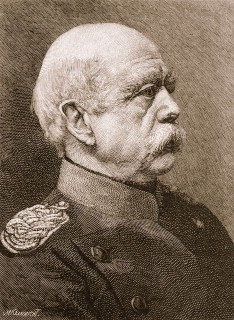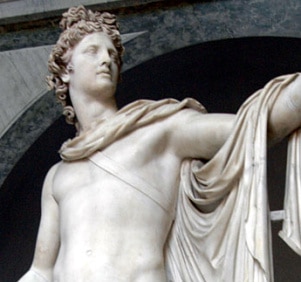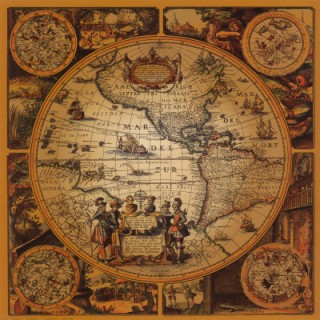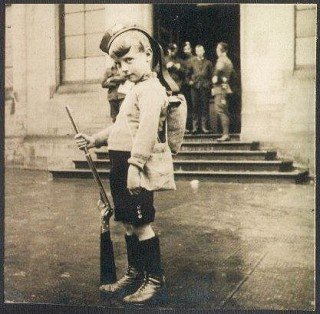DISCLOSURE: VT condemns the horrific tragedy committed by the NAZI Party against Jewish Citizens of Europe during Word War II known as the "Holocaust". VT condemns all racism, bigotry, hate speech, and violence. However, we are an open source uncensored journal and support the right of independent writers and commentors to express their voices; even if those voices are not mainstream as long as they do NOT openly call for violence. Please report any violations of comment policy to us immediately. Strong reader discretion is advised.
by Ingrid R. Zundel, edited by Jim W. Dean
In our troubled times, it’s cool to bash to Germans. My enemies, of course, make German-bashing their favorite sports, but they can be forgiven because that’s in their nature as well as in their political interest.
However, sad to say, some of my best friends are German-bashers also.
Why? Don’t ask me. Because it is so easy? Just paint a mustache on anybody you don’t like – and presto! Sheeple Power! You can strut around with a halo. Few are the braves who’ll confront you and object.
It is no secret that I am on the war path against Sheeple Power. Today I launch the following two scholarly sorties – not written by me, I modestly hasten to add! – for those who strive for clarity of thought, no matter what the fall-out.
One is an excerpt from a website called www.germanviews.de/ . The commentary following that excerpt is brought to you courtesy of one of my favorite writers, the Canadian Ian Macdonald, a former diplomat par excellence and one-time anti-Sheeple columnist for the beleaguered Zundelsite.
Here goes:
The most common and widespread basis for hostility toward things German is what I call the Western anti-German narrative. In this ideology, which is spread by films, literature, and popular depictions of history, Germany has represented a danger for its neighbors in the past and still represents a potential danger.
For this reason, Germany must be fettered, disempowered and diluted because the German national character is anti-democratic, excessively obedient to established authority, collectivistic, violence-prone, warlike, genocidal, etc., etc. [ad nauseam!]

Present-day historians are generally too sophisticated to draw a clear and direct line between Luther, Frederick, Bismarck, and Hitler, but the lingering effects of such propagandistic historiography are still quite noticeable today, expressed in the tendency to treat all German history as the prehistory of the Third Reich.
One cannot understand this concept of history unless one understands the historical context of the European civil war that has been raging since 1789.
This civil war is being fought by the adherents of three ideologies who constantly change their names, slogans, and programs but still retain a recognizable identity and continuity.
We are dealing with two utopian and one non-utopian worldviews, Liberalism and Socialism on one hand and what is variously called Conservatism, Reaction or simply the Political Right on the other hand.
The utopian approach assumes the possibility of peaceful and civilized coexistence among mankind. This would not have to be a miracle but is rather something that can come about as a matter of course. For this reason one does not have to examine and analyze the fundamentals of society itself; one can directly and immediately pursue the realization of paradise on earth, either through gradual reform or revolutionary violence.
The Utopian Ideologies Imply a Number of Assumptions
Firstly, utopian societies hold that man is by nature good. Social conditions such as inequality and lack of freedom are responsible for the existence of evil and must, therefore, be banished.
The approach of the political Right is that man is inadequate and weak and mired in original sin and must, therefore, rely on a social order for support. Therefore a certain measure of inequality and bondage must be accepted as necessary. The alternatives are not “Liberty, Equality, Fraternity” but rather chaos, violence, and barbarism.

Secondly, Utopian ideologies hold that society can be rationally planned; its design is a matter of reason and enlightenment. The Right, by contrast, believes that what is traditional and established can be destroyed by criticism, but cannot be replaced by anything better through rational processes.
Examples of what cannot be replaced by rationalism are the concepts of family, faith, tradition, and Fatherland.
Thirdly, Utopian societies hold that what is “Good” (such as Freedom and Equality) can be rationally inferred, thus the Good is culturally independent and universally valid.
They believe that mankind can be redeemed if the Utopia derived from Enlightenment principles can be globally introduced.
For Conservatives, on the other hand, each culture is a unique, unplanned and irreproducible response to the elementary question of whether an orderly society is possible. The Right emphasizes the legitimacy of the particular as opposed to the validity of universal ideology.
Fourthly, Utopian societies harbor the belief that society has to be defined and analyzed according to their standards.
These standards comprise a standpoint of norms rather than facts – thus “What Should Be” trumps “What Is.” They are derived from rights rather than duties.
The Utopian concept of society confuses itself with “Reason and Enlightenment” because it is built on unreal notions instead of imperfect reality, and thus mistakes itself for “The Good.”
The reason Utopia mistakes itself for “The Good” is that it proceeds from the assumption that Man himself is good, and this implies that “The Bad” resides in social structures and concepts including tradition, articles of faith, duty, etc. In their way of thinking, if the structures are bad the defenders of these structures must likewise be bad.
The Utopian concept of society produces an apocalyptic concept of politics, according to which politics is a struggle between the powers of light and of darkness.
Consequently, war is not perceived as tragic and inescapable. It is perceived as justified when it is conducted for revolutionary aims and purposes. In that case, every atrocity is acceptable.
The Utopian concept perceives war as a criminal when it is conducted for counterrevolutionary aims and purposes, and then the means by which it is conducted are not taken into consideration.
And what does all this have to do with hostility against all things German?
If we conceive of 20th Century wars as parts of a global ideological civil war, Germany obviously represents the Right. Germany could never accept the idea that wars are conducted in order to bring about “The Good Order” such as “War to End All War.” This Utopian idea results in an apocalyptic concept of politics.
The idea of “Good War” is part of the Utopian concept of the liberalist world order as pursued by the Western “democracies” as well as the variant of Communism pursued by the Soviet Union. The accusation that Germany was striving for world domination, which was put forward at the beginning of the 20th Century, would have been absurd even if not raised by the Anglo Saxon powers!
At every moment of the 19th and 20th centuries, those countries were infinitely closer to world domination than Germany ever was, and they continue to be so in the 21st Century.
Nations that were protected by insular geography have historically indulged in bold thinking – and thanks to this geography, have been able to pursue global expansionist policies.

The liberal New World Order that appeared on the world stage before the First World War was also a fitting ideology for global Utopian thinking since imperialistic power politics functioned as the armed branch of Utopia.
It is not true that one was merely a function of the other. Both aspects of Anglo Saxon (and particularly American) policy were aspects of one and the same understanding of politics.
By contrast, Germany traditionally represented institutionalized counter-revolution.
Globalist Utopian thinking was alien to the German power elite since they faced the reality of governing a state that was constantly threatened from the inside as well as the outside.
Their political horizon was continental as opposed to insular, and so they were concerned with the consolidation of what actually existed.
The Reich did indeed adopt liberal, democratic and even socialistic ideas – consider the Bismarckian social legislation. However, it did so only on the condition that these ideas would consolidate the existing order. The door was open for socialistic ideas to develop, but they would never be allowed to destroy the existing order.
This political concept (renunciation of revolutionary or utopian policies) determined the policies not only of conservatives, but of the Liberals as well, and ultimately even the policies of the Social Democrats. The tendency to think in revolutionary and utopian terms was simply alien to Germany — it was too weak and exposed to attempt changing the world order or to entertain ideas of world conquest.
However, Germany was at least potentially strong enough to bring Europe into its sphere of influence and thus block the establishment of a New World Order; and if Europe were going to be true to its name, it would have to do likewise.

The war against Germany, which, as Winston Churchill observed, was, in fact, a Thirty Years War lasting from 1914 – 1945, was obviously not fought in response to any “crimes” committed by the National Socialists.
Instead, the Thirty Year War Against Germany was fought to force Europe into the liberalist-utopian world order and the Anglo Saxon sphere of control.
Germany did not subscribe to any grandiose principle that it wanted to make real.
It was a nation rooted in concrete reality whose order and goals was derived not from utopian designs but a practical necessity.
The Germans had no abstract loyalty toward liberal or “democratic” ideals, and this is what brought on the propagandistic accusation of being excessively obedient. Germany did not pretend to be fighting for universal bliss, therefore it had to defend interests that were defined not ideologically but rather ethnically.
Germany’s enemies construed this as “nationalism.” In fact, Germany championed communal values instead of individual entitlements. (…) Communal ideals are operative only when they are anchored in genuine emotions, the source of the cliché of German “romanticism” and “irrationality.”
In short, the facts that the Germans were different and thought differently from the Anglo Saxons and that they had no sense of Utopia, but rather represented a danger for its global realization, made them the principal enemy figure for Western Utopian thinking.
The clichés about the German national character represent the distorted and demagogically biased description of tendencies and dispositions that actually were (and still are) present. These clichés were indispensable because a country like Germany could not afford globalistic Utopianism.
As we see today, Germany still cannot afford it. Whether the Anglo Saxon peoples themselves can continue to afford it remains to be seen …
(Compiled and excerpted from notes of a speech given before the Berlin Institute for State Policy on the subject of “Hostility Towards Germans – An Appraisal” last summer by Manfred Kleine-Hartlage. Translated by James M. Damon. Full text www.german-views.de/…/hostility-towards-germans-part-i-the-anti-german- narrative-in-the-west/ )
What does that mean in today’s Utopian thinking with its corollary of fervent German-bashing, where it is almost seen as “normal” that institutional torture is an acceptable means to an end – or, worse, that it is quite okay to “liberate” a downtrodden people on the other side of the globe by lynching its titular head in full view of some cheering folks on the Net?
I am speaking of tangible costs, as summarized by my friend, Ian Macdonald:
America’s participation in [World War II] is seen as having been undertaking for the defense of Western Christian civilization.
[ People accept] without question the thesis that Hitler and the Nazis had to be stopped – lest “we all end up in concentration camps” or worse, under the heel of a ferocious dictator and his sinister Gestapo. Such was the temper of the times.
[There was no awareness] that there could be a much more menacing evil afoot, even though some coverage was given to the Soviet invasion of Finland and the Nazi-Soviet pact that expanded Stalin’s bloodthirsty rule into Poland and the Baltic countries where thousands died at the hands of anti-Christian Kommissars, many tortured to death and their families sent to Siberia in sealed boxcars.
It was the festering resentment of the misery caused (…) that set the stage for the emergence in the ‘twenties of an inspiring populist Fuehrer, promising to restore German honor and dignity, and the German economy, by the retrieval of its conquered territories.
Like most other media, the [Western media] glamourized the war, helping to persuade hundreds of thousands of young men, including the writer, to lust for the opportunity to get into action, preferably in the RCAF even when, for a time, the chance of survival in Bomber Command was slim, at best.
Creating enthusiasm for martyrdom was a challenge shared by the [media] with the Government (who controlled the news) and with almost all Canadian institutions of learning, especially high schools where morning assemblies featured patriotic songs almost every day and teenage volunteers were accorded virtual hero status.

Combining such inducements with the stigma of cowardice for malingerers ensured the Armed Forces of a steady flow of volunteers and enabled the Government to postpone the introduction of politically-unpalatable conscription for overseas service that had created fury in Quebec in World War I.
Servicemen and women who emerged from the conflict unscathed typically referred to their experience as the most exciting and meaningful of their lives, and except for the loss of comrades, the most satisfying.
The pride of being part of the Big Show, the camaraderie among new friends from all classes, the defiance of death, the admiration of the public, the girls who couldn’t resist a uniform (thousands of whom were taken home as war brides), the travel to Britain and the battle zones, the mastery of new skills, and above all the supreme satisfaction of having defended one’s family and one’s country successfully against a ruthless enemy intent on destroying our democracy, our freedom, and our basic human rights, turned ordinary young men into warriors.
THE HITLER REGIME has passed from the scene, as have most participants in the war it so vividly and optimistically portrayed, leaving survivors to wonder how a Good War and Total Victory could have brought such calamity and so tragically betrayed the trusting patriots who had dedicated, and often lost, their lives in rallying to the defense of Freedom.
It is now clear that the celebrated Allied Victory did not save Western Christian Civilization as promised, but precipitated its demise.
There is even good reason to doubt that the case for making war was ever sufficiently plausible and compelling to justify the inevitable horrendous sacrifice, especially coming on the heels of the Great War (“to end all war”) that already had stripped both the Allied nations and Germany of many of their best and brightest, and, in most cases, of the victims’ priceless progeny. (…)

Very few had the insight, integrity, and courage to challenge the ostensible purpose of the war or to recount the hideous atrocities committed on Germans during and after the fighting, let alone the authenticity of the “victory” for the democracies.
Few dared to elucidate on the disastrous geopolitical repercussions and eclipse of European power.
In retrospect, the [media], with the best of intentions and in tune with the times, appears to have accepted the Hollywood version of German intentions, and along with the entire country, acceded to the most monstrous contrived miscalculation in history, carried out against the best interests of the British Commonwealth and Western democracies.
Britons and Canadians were led to believe that their German kinfolk, who held no animosity towards them, was the enemy who threatened their freedom, when in fact the enemy was the atheistic Soviet regime whose bloodthirsty Kommissars had liquidated, by 1939, at least 20 million Christians and was intent on subjugating Europe at the earliest opportunity. Germany offered the sole effective defense against such a fearful prospect.
Germany, astutely and persistently but with increasing frustration, sought peace with Britain in order to concentrate on eliminating the imminent Soviet threat but, on Churchill’s orders, the generous “peace with honor” proposals were rejected out of hand, sounding the death knell for tens of millions, including 45 thousand young Canadians..
The same Churchill, when shortly after the destruction of Germany the Soviet threat quickly re-emerged, quipped flippantly to an Aide “It looks like we slaughtered the wrong pig!”.
Britain and Canada were soon in a military alliance with Germany, but it was a decade too late. The hostile Soviet Union had already enslaved Eastern and Central Europe, the Baltic countries. Poland, the country whose independence Britain had ostensibly gone to war to defend from Hitler, was cynically delivered into the bloodstained clutches of a far more sinister and malevolent dictator.
Even more ominous was the invasion, occupation and sacrilegious militarisation of Palestine, the Christian Holy Land, by ruthless Zionist Jews, a part of the “tiny remnant” of East European Jewry who had “miraculously escaped extermination in the gas chambers” of what is now described as The Holocaust.
The Star Weekly made scant reference to the implications of this impending European colonization in the Middle East, nor to the oppressive colonization of Germany and Eastern Europe and, perhaps caught up in the euphoria of “Victory”, was content to accept the widespread prognosis of a Brave New World and lasting peace.
Other newsworthy issues and anomalies even more studiously ignored by the Star Weekly were the identities of the sinister forces behind the inexplicable decision to declare war on Germany alone when both Germany and the Soviet Union invaded Poland in September, l939 (no less illogical than the subsequent refusal of the Churchill government to accept an honorable peace).
The rationale for making war was not widely debated at the time, partly because of censorship and self-censorship by the media, but it is difficult to imagine that the issue did not loom large in the minds of all knowledgeable observers who had the best interests of their country at heart, who knew the true meaning of war and wondered whose interests were served.
An early vigorous campaign by the media against the Unnecessary War, based on self-interest, patriotism and common sense, could well have changed the course of history.
In the dangerous realignments of the immediate post-war era, the miscalculations of Allied “statesmen” became clear; the most calamitous being the designation of our Christian European ethnic and cultural German kin-folk as the “enemy”.
In fact, Germany was our natural ally, just as the atheistic, genocidal anti-Christian Stalin dictatorship was our natural enemy.
Making war on Germany ensured that Communism (and Zionism) would triumph and that British and European importance in world affairs would decline accordingly.
With the strengthening of Soviet influence by the communist victory and occupation in Europe, the communist takeover in China was a foregone conclusion, as was the further extension of communism and revolt into the former Japanese, British, French and Dutch colonies, ultimately causing the death of untold millions, including thousands of Allied soldiers who died in Korea and Vietnam.
In the Middle East, the outcome of the misguided, fratricidal war against Germany was no less disastrous, leading to the dispossession and cultural genocide of an entire nation and brutal desecration of the Christian Holy Land.
Worse still was the subversion and corruption of the Christian democracies leading to perpetual strife in Palestine and bloody invasions of Afghanistan and Iraq by the U.S.A. (…)
WHAT IF HITLER HAD WON?
Could there have been a more palatable outcome than the Pyrrhic victory? “What if Hitler had won?” – a rhetorical question asked usually to evoke shivers of horror among listeners.
But if Germany had won, arguably the world would by now be a much better and safer place.
And the “what if” is not nearly as far-fetched as Allied propagandists would have us believe. Germany certainly would have won if Britain and France, and eventually America, had acted in their own obvious best interests and remained neutral or entered the war on Germany’s side.
An Anglo-German alliance was by no means a total implausibility given that the immensely popular pro-German King Edward VIII would have remained on the throne had it not been for the fateful intervention of the seductive Wallis Warfield Simpson (described as a “godsend” by the vengeful pro-war lobby).
As King, Edward VIII could have kept war-weary Britain from declaring war on Germany and, following German success on the Eastern Front against the universally-hated Stalin dictatorship, could have brought Britain into a NATO-style alliance of anti-communist European nations (as took place, in any event, a few years later).
In such circumstances, a grateful, friendly Germany could have guaranteed the integrity and survival of the British Empire, which Hitler much admired.
What if then our German anti-communist coalition had liberated the Soviet Union and reconstituted its components as semi-autonomous states under German hegemony? Surely then the Stalinist threat to freedom would have been eliminated for the foreseeable future.
Had events followed such a favorable course, almost a certainly had Edward VIII remained as King, the outlook for Western Christian civilization would now be decidedly less ominous and control of our destiny would have remained securely in our own hands.
Had Britain not been deceived and betrayed into war with Germany, with whom she had no authentic quarrel, there would have been no Second World War, tens of millions of lives would have been spared, priceless European architecture would not have been destroyed, Europe would have been united under German leadership, international communism would have become a footnote in history.
Trillions of dollars could have been used for the betterment of mankind, the environment could have been protected, the Cold War would have been forestalled, (along with the Korean and Vietnamese wars and communist sponsored revolutions elsewhere).
Six Million or more Jews would have been harmlessly ensconced in a tropical paradise, there would have been peace and justice in the Middle East, China would have evolved along Taiwanese lines under capitalism, sharing with Japan and the Colonial Powers influence over S.E. Asia.
There would have been no UN meddling, no Third World turmoil, no “refugee” migrations, no deprivation of freedom in the name of “human rights”, no Affirmative Action, no asinine Political Correctness and, above all, no subversion and corruption of Western society and the democratic political process by a cunning, avaricious alien minority.

Ingrid Rimland is an award-winning ethnic novelist and documentary producer. Currently she works on a wide-screen feature movie (Category: Contemporary Political Drama) called THE EXPATS.
Born to Russian-German Mennonites in the Ukraine, she experienced World War II as a small child. Multilingual and gifted linguistically, she brings a unique perspective to the Patriot struggle, having lived under four dictators in her young years – Stalin, Hitler, Peron of Argentina, and Stroessner of Paraguay.
Ingrid is proudly married to one of the world’s most politically incorrect human rights activist, Ernst Zundel, kidnapped by America’s Zionist-beholden government goons on American soil in 2003 for having spoken Truth to Power about the so-called “Holocaust”. She has earned a doctorate in Education from the University of the Pacific and been a U.S. citizen since 1973.
ATTENTION READERS
We See The World From All Sides and Want YOU To Be Fully InformedIn fact, intentional disinformation is a disgraceful scourge in media today. So to assuage any possible errant incorrect information posted herein, we strongly encourage you to seek corroboration from other non-VT sources before forming an educated opinion.
About VT - Policies & Disclosures - Comment Policy




